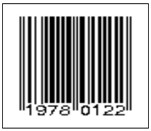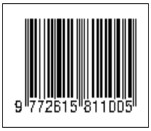ANALISIS PERUBAHAN STRUKTUR LEMBAGA NEGARA DAN SISTIM PENYELENGGARAAN KEKUASAAN NEGARA REPUBLIK INDONESIA BERDASARKAN UNDANG-UNDANG DASAR 1945 SEBELUM DAN SESUDAH AMANDEMEN
Abstract
The amendment to the 1945 Constitution after the 1998 reform is based on the experience of the practice of state administration by the old and new order governments which are often referred to as authoritarian government systems, both overt and covert. The 1945 Constitution indeed gives enormous power to the President, both Sukarno and Suharto. Weaknesses contained in the 1945 Constitution that triggers the birth of the demands of the reformists to make amendments to the 1945 Constitution, especially concerning the power and term of office of the President. It is important to realize that after the 1945 Constitution is amended, it has very basic implications for the structure of the Republic of Indonesia. Before the amendment to the 1945 Constitution the existing state institutions are the People's Consultative Assembly, the President, the People's Representative Council, the Supreme Consultative Council, the Supreme Audit Board and the Supreme Court, whose titles are divided into two, namely the highest state institutions which are embedded in the People's Consultative Assembly, and the other is a high-level state institution.
After changes or amendments to the 1945 Constitution from 1999 to 2002 have implications for changes in the structure of existing state institutions and the number becomes more than before the change. The state institutions after the change are explicitly mentioned in the nomenclature such as: the People's Consultative Assembly, the House of Representatives, the Regional Representative Council, the Regional People's Representative Council, the President and Vice President, the Minister (Specially the Minister of the Interior, the Minister of Foreign Affairs and the Minister of Defense ) Governor, Regent, Mayor, Indonesian National Army, Republic of Indonesia National Police, Supreme Court, Constitutional Court, Judicial Commission and Supreme Audit Board. While there are other state institutions whose nomenclature is not mentioned explicitly namely; Advisory Council, Election Commission and Central Bank. As a consequence of the amendment to the 1945 Constitution, the constitutional system adopted has also changed. If before the change to the constitutional system adopted is the cameral union representative system, but after the change into the bicameral system, some even called it tri kameralKeywords
Full Text:
PDFReferences
Alifuddin, Moh. 2012. Berdemokrasi Panduan Praktis Prilaku Demokrasi, Cetakan ke 1. Magnascript Publishing, Jakarta
A. Mukti Arsyad, 2000. Amandemen UUD 1945, Antara Teks dan ONTEKS Dalam Negara Yang Sedang
Berubah, Sinar Grafika Jakaarta
Asshiddiqie, Jimly,2004. Format Kelembagaan Negara dan Pergeseran Kekuasaan Dalam UUD 1945, FH.UII, Yogyakarta.
________________,2005a. Hukum Tata Negara dan Pilar-Pilar Demokrasi, Cetakan ke-2. Konstitusi Press. Jakarta.
_______________; 2005b. Mahkamah Konstitusi Dalam Sistim Ketatanegaraan Republik Indonesia
Makalah disampaikan pada Kuliah Umum di Univ.Barawijaya, Malang, 29 September 2005.
_______________, 2006a, Konstitusi dan Konstitutusionalime Indonesia, Kosntitusi Press Jakarta.
_______________, 2006b, Perkembangan dan Konsolidasi Lembaga Negara Pasca Reformasi, Sekretariat Jendral dan Kepanitraan Mahkamah Konstitusi RI. Jakarta
Ghoffar, Abdul. 1999. Perbandingan Kekuasaan Presiden Indonesia setelah Perubahan UUD 1945, Dengan Delapan Negara Maju. Ed.1. Cetakan ke-1. Kencana Prenada Media Group, Jakarta.
Philipus M. Hajon, 1992. Lembaga Tertinggi dan Tinggi Negara Menurut UUD 1945, suatu analisa Hukum, , PT Bina Ilmu, Suraabaya
Indra, Muhammad Ridwan, 1998. Dalam UUD 1945 Kekuasaan Exskutif Lebih Menonjol ( Exskutif Havy ) Haji Masabung Jakarta.
Isra, Saldi, 2002. Kosntitusi Baru Melalui Konstitusi, dalam Jurnal Analisis CSIS, Tahun XXXI/Nomor 2.
_________; Dewan Perwakilan Derah Antara Keterbatasan dan Akuntabilitas; http://www.Saldiisra.web.id.( akses 6 Maret 2019, 19.30 wita.
_________; Amandemen Lembaga Legislatif dan Ekskutif : Prosfek dan Tantangan, Jurnal UNISIA UII, Yogyakarta. Edisi 48, Tahun 2003. ( Makalah disampaikan dalam diskusi terbatas dengan thema Eksistensi Sistim Kelembagaan Negara Pasca Amandemen UUD 1945, yang diselenggarakan oleh Konsursium Reformasi Hukum Nasional, di Jakarta, September 2004 ).
Mahfud MD, Moh., 2000. Demokrasi dan Kosntitusi Indonesia, Studi tentang Intraksi Politik dan kehidupan Ketatanegaraan, Rineka Cipta. Jakarta
Manan, Bagir, 2003. DPR,DPD dan MPR Dalam UUD Baru, FH.UII Press. Yogyakarta
Marhall, Geoffrey, 1971, Constitutional Theory, London : Oxord University Press.
Montesquie, 1993. Membatasi Kekuasaan; Telaah Mengenai Jiwa UUD, Terjemahan.J.R. Sunaryo, Gramedia Pustaka Utama, Jakarta
Mahendra, Yusril,1983. Tentang Lembaga-Lembaga Negara Menurut UUD 1945, Citra Aditya Bakti, Bandung
______________, 1996. Dinamika Tatanegara Indonesia, Kompilasi Aktual Masalah Konstitusi DPR dan Sistem Kepartaian, Gema Insani Press, Jakarta
Siahaan, Pataniari. 2012. Politik Hukum Pembentukan UU pasca Amandemen UUD 1945. Cetakan ke-1, Kosntitusi Press. Jakarta
Suny, Ismail. 1986. Pergeseran Kekuasaan Exskutif. Cetakan ke-6. Aksara Baru. Jakarta
Triwulan Tutik, Titik. 2008. Pokok-Pokok Hukum Tata Negara Indonesia, Pasca Amandemen UUD 1945. Cetakan ke-1. Cerdas Pustaka. Surabaya
Teguh Satya Bhakti, 2009. Pola Hubungan Presiden dan DPR Menurut Perubahan UUD 1945, dalam Jurnal Konstitusi, Vo.6 No.4 Nopember 2009.
Undang-Undang
UUD 1945 Sebelum Perubahan;
UUD 1945 Pasca Perubahan ( Amandemen )
UU No. 24 Tahun 2003 Tentang Mahkamah Konstitusi.
UU No. 22 Tahun 2004 Tentang Komisi Yudisial.
DOI: https://doi.org/10.35327/gara.v13i2.90
Refbacks
- There are currently no refbacks.
Copyright (c) 2019 GANEC SWARA

This work is licensed under a Creative Commons Attribution-ShareAlike 4.0 International License.










